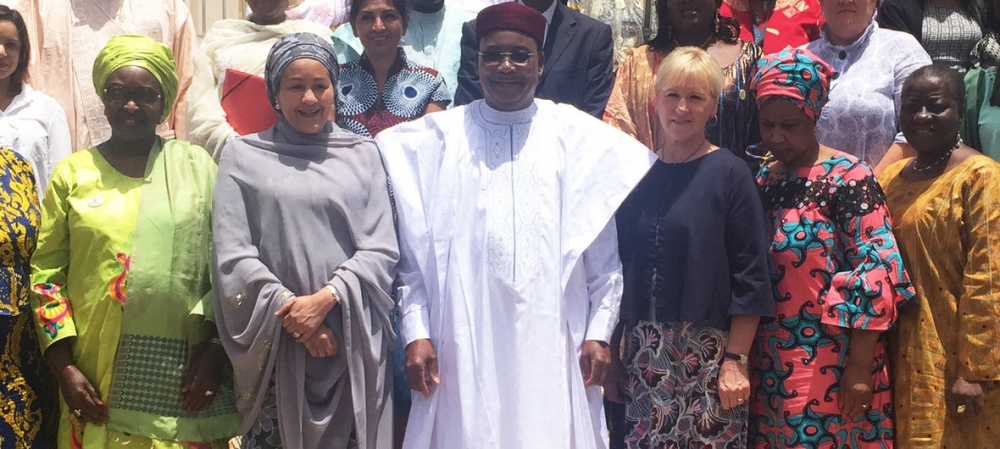Women’s leadership is critical to the future of Niger

After meeting with the Nigerien president, Mahamadou Issoufu, on Saturday, Amina Mohammed, the UN Deputy Secretary-General, commented:
“I stressed to the President the importance of women’s participation and leadership in preventing conflicts. I also underlined the need to include women in all national and regional responses to the ongoing environmental, humanitarian and development challenges that Niger and the Sahel region face."
Ms. Mohammed is leading the joint United Nations - African Union (UN-AU) visit to Niger. Most of the visitors are senior women in the UN, the African Union, Special Envoy on Women, as well as Peace and Security, including the Foreign Minister of Sweden, Margot Wallström.
Women’s participation and leadership in conflict prevention, including violent extremism, are the main concern of the trip.
The security situation has aggregated since 2015. About 300,000 people fled from Niger because of the first attack. This was triggered by Boko Haram extremist in Diffa in the east of the country. Most of those who fled are women and children.
This armed group aims to create an Islamic state in the north of Nigeria. It is particularly harmful to women and girls who have experienced violence. This has been described by the UN as “staggering and multiple forms of sexual and gender-based violence”.
Humanitarian situation
The humanitarian situation has been rapidly deteriorated by insecurity, which led to displacement and climate change, including insufficient rains. The number of people who need assistance has increased by 20% this year.
A new influx of refugees from neighboring regions have arrived in Niger. These 165,000 people were displaced from the epicenter of Boko Haram activities.
Support Plan
Niger is one of ten countries which are part of the UN Support Plan for the Sahel, a region which extends from Chad in central Africa to Mauritania and Senegal in the west. The goal of the plan is to establish lasting peace in ten focus countries. It prioritises economic growth, women youth, and job creation.
Ibrahim Thiaw, the UN Secretary-General’s Special Adviser for the Sahel, who was also part of the UN–AU joint visit to Niger, commented:
“There are certainly significant challenges in this region, but there are also opportunities. The degradation of the environment, insecurity due to extremism and terrorism are both deep-rooted problems. However, the region has enormous potential due to its natural resources and cultural assets as well as, of course, its people.”
The ten focus countries in the Sahel Support Plan are: Burkina Faso, Cameroon, Chad, The Gambia, Guinea, Mali, Mauritania, Niger, Nigeria and Senegal.
Join us for the 10th Anniversary AIDF Global Summit in Washington D.C, USA on 5-6 September 2018, where this topic and more will be discussed.
If you’d like to stay informed on the latest updates in aid and development, please sign up for the AIDF newsletter.
Image credit: UN















